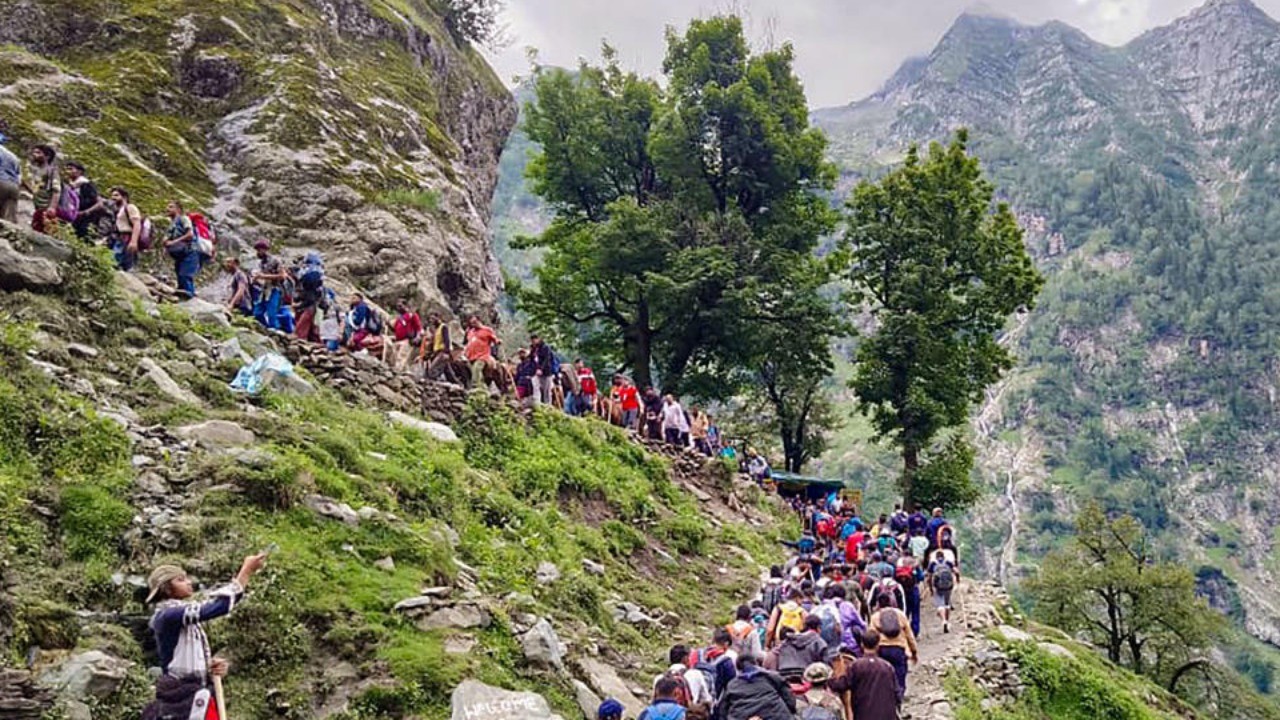Global Terrorism, Local Blame: Unpacking the Pahalgam Attack and Its Far-Reaching Consequences
By: Javid Amin
Srinagar, April 24, 2025 – The recent militant attack in Pahalgam, where 26 innocent tourists lost their lives, has cast a long shadow over the Kashmir Valley. While the immediate aftermath saw mourning and condemnation, a disturbing trend has emerged: the unjust blaming and targeting of local Kashmiris. This narrative not only exacerbates existing tensions but also overlooks the global nature of terrorism.
Global Terrorism: A Shared Challenge
Terrorism is not confined to any single region or community. Across the globe, militants have targeted civilians and tourists, leaving behind trails of devastation:
-
Paris, France (2015): Coordinated attacks across the city resulted in 130 deaths, including tourists.
-
Bali, Indonesia (2002): Bombings in tourist areas killed over 200 people, predominantly foreign visitors.
-
Barcelona, Spain (2017): A van attack on Las Ramblas claimed 16 lives and injured over 100.
-
Sri Lanka (2019): Easter Sunday bombings targeted churches and hotels, killing over 250 individuals, including tourists.
-
New York City, USA (2001): The 9/11 attacks led to the deaths of nearly 3,000 people, including international visitors.
These incidents underscore that terrorism is a global issue, and attributing such acts to local communities is both unjust and counterproductive.
Kashmiris: Victims, Not Perpetrators
The people of Kashmir have endured decades of conflict, often finding themselves caught between geopolitical tensions. The Pahalgam attack not only targeted tourists but also struck at the heart of Kashmir’s economy and social fabric.
-
Economic Impact: Tourism, a vital sector for Kashmir, has suffered immensely. Following the attack, there has been a surge in cancellations, with reports indicating that 80-90% of bookings have been withdrawn.
-
Social Repercussions: Local communities, heavily reliant on tourism, face economic hardships. The attack has also led to increased scrutiny and stigmatization of Kashmiris, both within and outside the region.
-
Resilience Amid Adversity: Despite these challenges, Kashmiris have consistently demonstrated resilience, extending hospitality to visitors and striving to maintain peace and normalcy.
Kashmiris Under Attack: Reports from Across India
Whether they are students, businessmen, or tourists, many Kashmiris are now facing a wave of xenophobia, suspicion, and targeted violence in various cities outside the Valley. Numerous credible reports and social media videos reveal:
-
Physical Assaults: Several Kashmiri students studying in cities like Dehradun, Pune, and Delhi have reportedly been attacked or threatened by mobs accusing them of “supporting militancy.”
-
Business Vandalism: In Uttar Pradesh, Maharashtra, and Himachal Pradesh, street vendors, shawl sellers, and dry fruit merchants from Kashmir have had their stalls vandalized and goods destroyed.
-
Hostel Evictions: In some cases, Kashmiri students have been asked to vacate hostels or PG accommodations, citing “security concerns.”
-
Boycotts: Calls for boycotting Kashmiri businesses are circulating on social media platforms, leading to economic anxiety and fear among traders.
-
Detentions Without Cause: In a few places, Kashmiris have been detained or questioned simply for speaking their language or looking “suspicious,” based solely on stereotypes.
“I was surrounded by a group of people near the railway station who started questioning me aggressively about the Pahalgam attack. When I told them I’m a shawl trader from Baramulla, they slapped me and called me a terrorist.”
— Nasir Ahmad, a vendor in Meerut, Uttar Pradesh
Long-Term Implications
The misguided anger being directed toward innocent Kashmiris is not only unjust — it’s dangerously divisive.
-
Social Polarization: Targeting an entire community over the actions of a few is a recipe for long-term hatred and distrust. History has shown us how quickly such divisions escalate into riots, pogroms, or permanent community rifts.
-
Fuel for Radicalization: When innocent people are consistently blamed, abused, and denied safety or justice, it risks pushing some towards resentment or radical ideologies. Marginalization breeds extremism — and this backlash may feed the very cycle of violence we seek to end.
-
Collapse of National Unity: India has always prided itself on unity in diversity. Attacking Kashmiris weakens the fabric of that unity and sets a dangerous precedent for targeting any ethnic or regional group during times of crisis.
-
Damage to Education and Trade: Thousands of Kashmiri students study outside the Valley. If they start dropping out or returning home in fear, India’s educational institutions lose bright minds. Similarly, Kashmiri traders and artisans contribute immensely to the handicraft, tourism, and dry fruit economy of India.
-
Reputational Damage to India: Videos and reports of Kashmiris being manhandled and abused are going viral on international platforms. This tarnishes India’s global image as a democracy that protects all its citizens.
What Needs to Be Done — Urgently
India, as a nation, must rise above hate and scapegoating. To ensure this situation does not spiral into something irreversible, the following steps must be implemented immediately:
- Public Statements by Leaders: Political and religious leaders must condemn the attacks on Kashmiris unequivocally and appeal for peace and restraint.
- Media Responsibility: News channels must avoid inflammatory coverage and instead focus on factual reporting. Avoiding communal narratives is crucial.
- Police Protection: Local authorities in cities and towns across India must increase patrols in areas with Kashmiri populations, set up helplines, and prosecute perpetrators of hate crimes swiftly.
- Social Media Monitoring: Authorities must crack down on accounts spreading hate speech, misinformation, or calls for violence against Kashmiris.
- Community Engagement: Local communities, NGOs, and citizen groups should reach out to Kashmiris living in their areas and extend solidarity and support.
- Student Safety Cells: Universities should activate student protection protocols to ensure safe accommodation and mental health support for Kashmiri students.
Let’s Not Repeat Past Mistakes
This is not the first time Kashmiris have been targeted outside the Valley. After the Pulwama attack in 2019, similar patterns of violence emerged, with hundreds of students fleeing hostels and small traders abandoning their stalls in fear. We must ask ourselves: Did we learn anything from that experience?
Allowing such cycle of blame and violence to repeat only proves that our society is failing to rise above hate and misinformation. This time, the consequences could be even more disastrous.
The Real Enemy Is Terrorism — Not Kashmiris
It must be clearly understood: The Pahalgam attack was not carried out by Kashmiri students, vendors, or working-class people living outside the Valley. Blaming the victims of a conflict for the actions of violent actors only worsens the situation.
Instead of turning on each other, let’s turn our collective anger towards the root causes of terrorism, extremism, and misinformation — and work together to build a safer, more inclusive society for all.
A Call for Unity and Empathy
In the face of such tragedies, it’s imperative to foster unity and understanding rather than division.
-
Collective Responsibility: Recognize that terrorism is a global issue requiring collaborative efforts to address its root causes.
-
Support for Affected Communities: Provide economic and social support to communities impacted by such attacks, ensuring they are not further victimized.
-
Promoting Accurate Narratives: Media and policymakers must strive for balanced reporting, avoiding sensationalism and ensuring that blame is not unjustly placed on innocent communities.
Bottom-Line: Towards a More Inclusive Future
The Pahalgam attack is a stark reminder of the pervasive threat of terrorism. However, attributing blame to local Kashmiris only serves to deepen divisions and hinder recovery. By acknowledging the global nature of such threats and supporting affected communities, we can work towards a more



